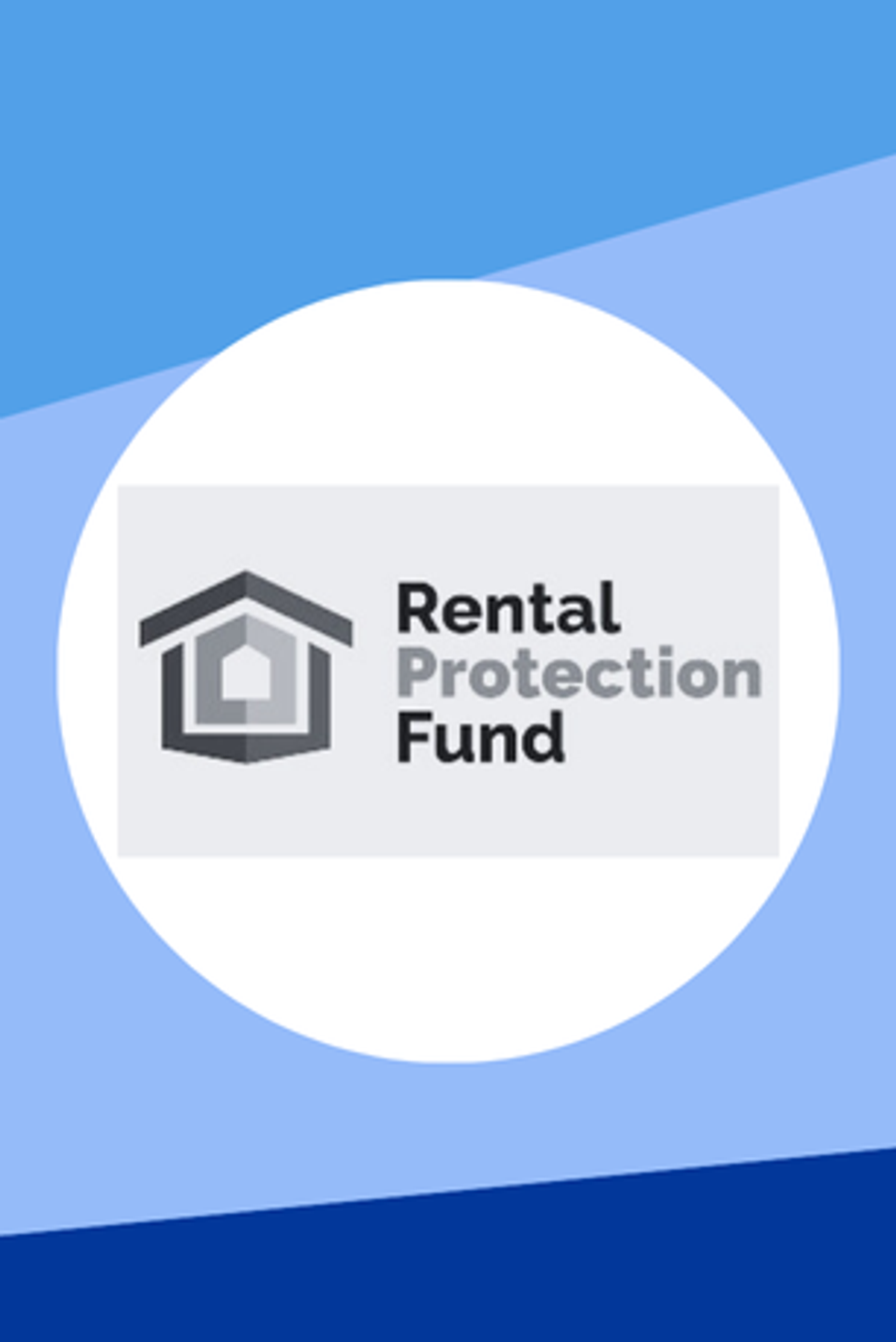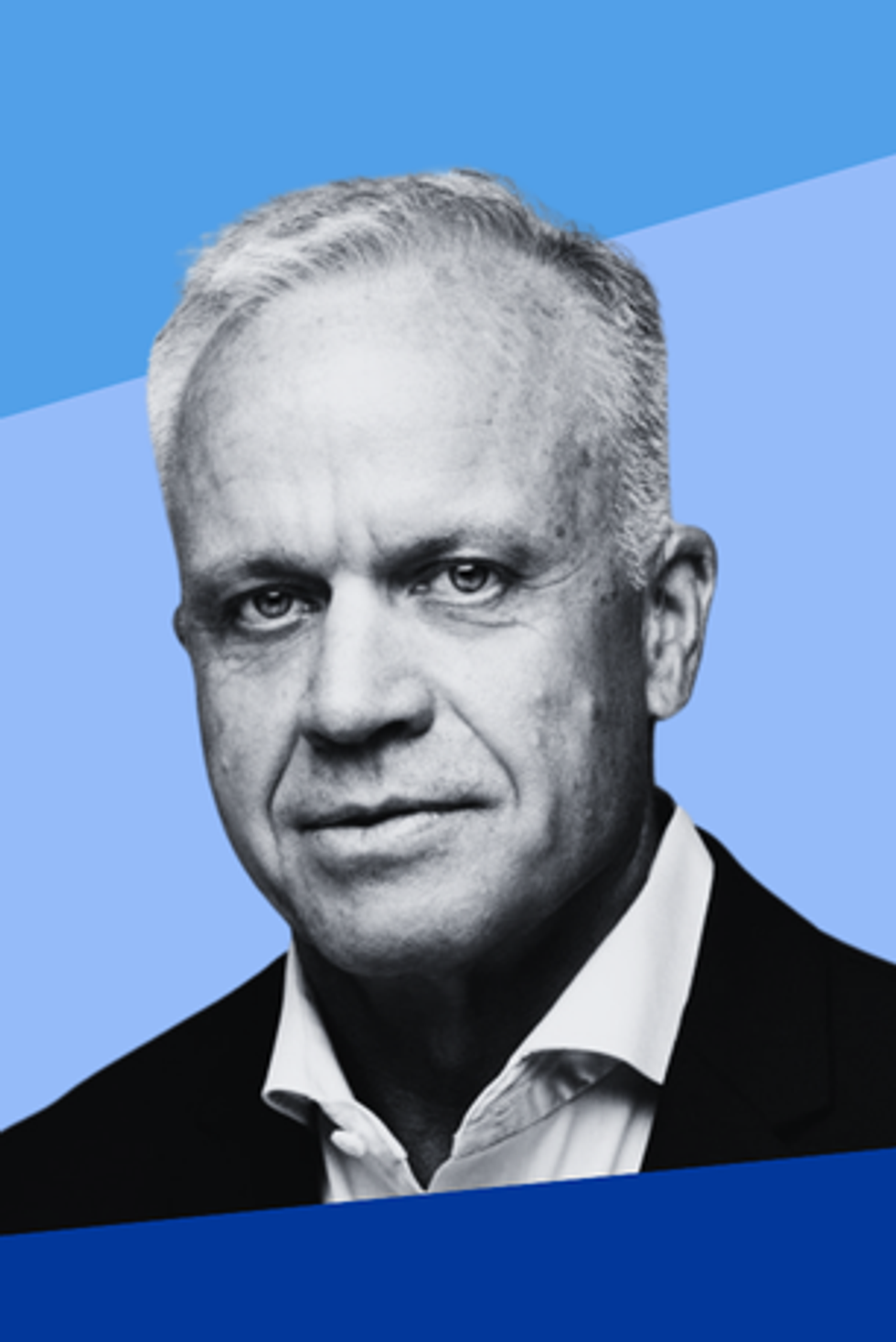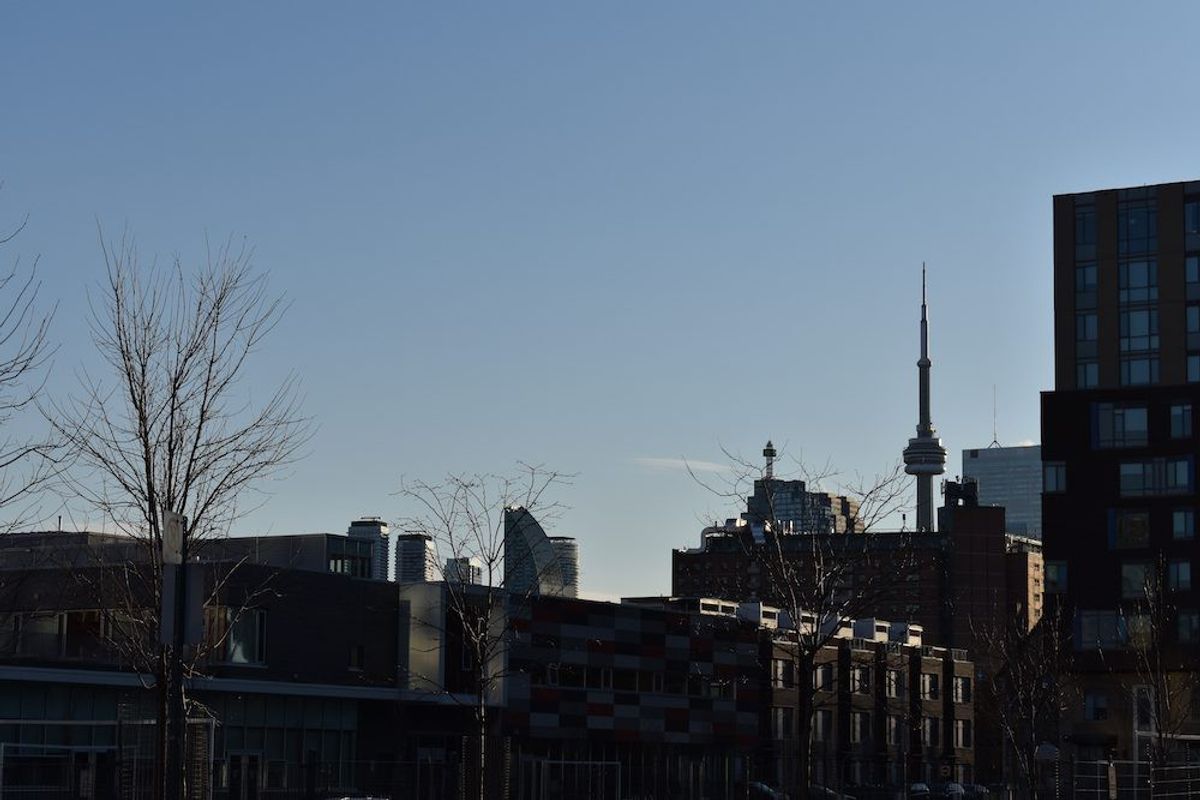Lists of most influential people are never comprehensive, but they operate to bring a few key players into the light. Here we’ve compiled a list of of the most influential people in BC real estate this year – those who’ve played a part in growing the industry, or developing housing policy, or exposing the breaks in the housing system, or simply keeping people informed and engaged with one of the province’s biggest industries. Real estate may be the business, but housing is the heart, because it’s a necessity that touches every person’s life, especially those struggling with affordability.
This list (in no particular order) therefore includes those who are influential not just in real estate, but housing, too. Whether you like them or not, each person here is influential in their own way, impacting the issues that make real estate and housing a forever topic in one of the most expensive cities in the world.
(You can find Ontario's Most Influential here.)
David Eby + Ravi Kahlon | The Legislators

Premier + Minister of Housing
You can't say they aren't taking the housing crisis seriously.
Whether you like what they’ve done or think they’re doing too much, you can’t say they're not taking the housing crisis seriously. Their belief was that previous governments did not do enough on the housing front and so they have tried to address the issue from seemingly every possible front.
In the past year, they’ve introduced an entire suite of legislation, to mixed reactions. Many generally agree with the concept of allowing multiplexes, but it remains to be seen whether the legislation will have a real-world effect. The TOD legislation has perhaps been the least-controversial piece of legislation, while the development financing legislation has undoubtedly been the opposite, angering many local governments and developers.
Critically, they have shown some willingness to acknowledge when they’ve made a bad move, walking back changes to eviction procedures as well as the 100% accessibility change to the Building Code following industry pushback. They’ll likely need to tap into that willingness some more after having eked out an election win by the slimmest of margins. For what it's worth, Eby has already said he’s gotten the message from voters.
Bosa Properties | The Developer

Leader: Colin Bosa, CEO
Down market? Nobody seemed to tell them...
Things have been tough for developers over the past few years, but you probably wouldn’t be able to tell by looking at Bosa Properties, which has continued to progress on its numerous projects across Metro Vancouver. They’ve got two hotel projects in Vancouver underway, several high-rises on the way or under construction in Burnaby, and two master-planned communities underway in Surrey. We’ve left out a few, too, including projects in the US.
The City of Burnaby recently began the process of easing its inclusionary rezoning requirements. The move came about three months after Bosa Properties voiced concern over the policy and how difficult rental projects are in Burnaby as a result of that policy. Coincidence? Maybe. But given how heaviliy invested Bosa is in Burnaby (among other cities), maybe not.
This year, they've also been growing the company's investment arm, IPB Investments, which acquired a portfolio of Home Hardware stores across Western Canada. Their construction companies, Axiom Builders and Bosa Construction, also frequently build projects for other developers.
Christine Bergeron | The New Hope

President & CEO at Concert Properties
She's the one people are looking up to.
The former president of Vancity, Canada’s biggest credit union, took over for Concert Properties’ long-standing co-founder and chair David Podmore when he retired this summer. Podmore is a real estate icon who built Concert alongside Jack Poole when they launched it in 1989 with a $27.4 million investment, and an idea to develop on publicly owned leasehold land. Concert has since diversified and partners with government to build major infrastructure. Concert has built nearly 13,800 homes and has around 9,000 more in development. It is owned by unions, management pension plans, and institutional investors, with more than $9 billion in assets, so Bergeron had big shoes to fill. She’ll now play a key part in the region’s housing issues as Concert’s leader, a role undoubtedly magnified by Bergeron being one of the few women at the helm of a major developer. It’s not her first time, though, as Bergeron already transformed Vancity from just another credit union to one devoted to environmental and social issues.
Josh White | The Planner

General Manager, Planning, Urban Design, and Sustainability at City of Vancouver
He has the power to make a lasting difference in local policy.
White is the latest planner to take on Vancouver’s chief planner role, and it’s not clear yet what the Calgarian will bring to the position. In recent years, previous planners have lasted two to five years on average, trying to sort out the mess that is Vancouver’s overly complicated planning process. Vancouver, as they say, is a town run by developers, so White’s advantage might be that he’s worked in the private sector, and he knows how a complicated permitting process can mess up a proforma. But that also poses the question, will he merely be working for more supply – which is an important task – or will he also answer the question of smart urban design, which is sadly lacking? As one academic called the strategy so far, “it’s spray-and-pray densification.” Will White recognize that urban planning might take more thoughtful consideration? It remains to be seen, but he's in the position to do so.MST | The Conglomerate

The xʷməθkʷəy̓əm (Musqueam), Sḵwx̱wú7mesh (Squamish), səlilwətaɬ (Tsleil‑Waututh) Nations
They're doing big things.
Vancouver’s three host nations continue to be a force in real estate. Through their joint development firm, MST Development Corporation, they’re now pursuing projects on well over 120 acres of land in Vancouver, across several developments.
The Jericho Lands project is the largest project in Vancouver, by land size and the amount of homes, while planning on the 3200 E Broadway site near Rupert Station recently kicked off, and their Heather Lands project was announced as the pilot project for the Province’s new Attainable Housing Initiative.
Individually, the three nations are also working on their own projects. This year, the Musqueam Nation joined the redevelopment of the Langara YMCA, the Squamish Nation is continuing the construction of Sen̓áḵw, and the Tsleil-Waututh Nation (along with the Musqueam Nation) are also set to launch their kʷasən Village project in Burnaby.
Wendy Waters | The Analyst

VP of Research and Strategy at GWL Realty Advisors
She's breaking it all down.
Knowing is half the battle and Wendy’s a big voice when it comes to drawing attention to trends in the real estate industry (residential and commercial) and helping people understand those trends. She leans on data and facts, and if you work in the industry, you’ve definitely come across some of the insightful infographics she drops regularly.
Aside from her role at GWL Realty Advisors, she’s an industry veteran with over 20 years of experience, holds a Ph.D, serves on the Board of UDI and the Steering Committee at ULI, and makes frequent appearances serving on panels at industry events, making her one of the more respected and visible people in the industry.
If you're not listening when Wendy is speaking, you're already missing out.
PCI Developments | The TOD Leader

Leader: Tim Grant, President
The transit-oriented developer.
Take any SkyTrain line and you will inevitably come across a big mixed-use hub built by PCI Developments — King George Hub on the Expo Line, Marine Gateway on the Canada Line, and about four on the Millennium Line Broadway Extension, to name a few.
The 40-year-old Vancouver private development company has made an art out of transit-oriented development, which puts it at the centre of one of the region’s most important city-building policies. Densification around transit not only makes sense for residents, but it also makes sense for taxpayers who are footing the bill for transit infrastructure. Because they had their eye on Transit-Oriented Development (TOD) before it became a thing, PCI have landed the choicest properties, whether on their own or with partners, which now include Low Tide Properties, TD Greystone, and TransLink.
Ross McCredie | The Disruptor

Chairman & CEO at Sutton Group
He's an insider with an outsider's mentality.
The founder of Sotheby’s International Realty Canada made a bold move when he purchased Sutton Group in 2023. The real estate firm has more than 6,000 realtors and is one of the largest in the country. Like a lot of industry experts, McCredie cut his teeth on the foreign buyer market while at Whistler’s Intrawest, where he ran development, sales and marketing, specializing in the international ski resort market. That helped him launch Sotheby’s, which he grew to 40 offices and more than 900 agents, with over $25 billion in sales. He’s never been a realtor; instead, he’s an entrepreneur, having founded wealth management platform RealWealth, which he sold off in 2021. He also co-founded global real estate investment company Dundee 360, which acquired Sotheby’s Canada in 2015. Today, he’s Chairman and CEO of Sutton Group and he runs McCredie Investments, an investment and advisory firm. He's a big player and he’s out to change the industry as a whole.
The Rental Protection Fund | The Protector

Leader: Katie Maslechko, CEO
They're the proof of concept that's inspiring other governments.
Born out of the perfectly sound idea that the preservation of existing housing stock is the preservation of affordable housing, the Rental Protection Fund is another BC initiative copied by the Feds. With a $500 million purse, the independent, arm’s length organization vets non profit housing providers and, if they qualify, they fund them with enough cash to make a suitable purchase and even fix it up. But from thereon, the nonprofit must manage the building and use any equity gains to build their portfolios. The Fund has filled out its staff this year, is overseen by Jill Atkey, Margaret Pfoh, and Thom Armstrong, and the NDP has promised to replenish the Fund's purse if they return to power.
Mark Goodman | The Renaissance Man

Principal, Goodman Commercial
He punches above his weight.
He’s been selling apartment buildings in BC for a while, when he’s not collecting art, but the commercial broker is increasingly on everyone’s radar when it comes to criticizing government policies that inhibit development. A regular in mainstream media, Goodman also publishes the Goodman Report and a regular newsletter about the market, makes speeches at real estate conferences, and writes opinion pieces on everything from the inability of the Rental Protection Fund to generate affordable housing, to calling politicians out for short-sighted policies. His brokerage punches above their weight, in terms of the amount of deals they’re involved in, and they expanded this year with a new Fraser Valley team.
Jamie Squires | The Marketing Maven

Managing Broker & President at Fifth Avenue Real Estate Marketing and Epic Real Estate Solutions
She continues to be a force.
The real estate expert has overseen major growth while she’s been with Fifth Avenue Real Estate Marketing, particularly in recent years. In the two decades she’s been with the Surrey-based marketing and sales company, Squires has worked her way up from advertising to President. The company, originally family owned, operates throughout the Lower Mainland, and works with developers on projects from site acquisition through to completion, whether it’s townhouses or master-planned communities. In recent years, they’ve partnered with Peerage Realty Partners brokerage and acquired Epic Real Estate Solutions in Kelowna, where Squires has been Managing Broker since 2021 and President since this April. They also work with BakerWest, which is marketing the 60-storey downtown Vancouver luxury Curv tower, a highly ambitious project that is also aiming to be the world’s tallest Passive House construction.Colliers + CBRE | The Brokers

Hart Buck and Jennifer Darling (Colliers) + Jim Szabo and Tony Quattrin (CBRE)
They're guiding people through the insolvency storm.
Insolvencies have unfortunately been a big theme in the real estate world this past year. For those who find themselves in these situations, whether you’re the lender, developer, or potential buyer, you’re in good hands if that court-ordered sales process is handled by Hart Buck and Jennifer Darling at Colliers or CBRE’s National Investment Team, which is led by Jim Szabo and Tony Quattrin. These two teams have handled a majority of the court-ordered sales we’ve seen over the past year, and there’s a good reason why they repeatedly get chosen for the job: they have successfully navigated through the process many times, such as a Coromandel Properties land assembly and the Horizon 21 project for the Colliers team, or 1555 Robson and 1045 Haro Street for the CBRE team, to name a few recent examples.Court of Appeal | The Precedent-Setter

British Columbia
They're literally influencing real estate transactions.
When the court upheld a reverse-vesting order used in a recent receivership case to avoid tax liability, it raised eyebrows because of its nation-wide implications. An RVO involves the transfer of unwanted assets and liabilities from the debtor company to another corporate entity. In the landmark case, all that remained were real estate assets. The RVO allowed the purchaser to acquire a beneficial interest in the real estate, without transferring title. That meant that provincial property transfer taxes totalling $3.5 million did not kick in. The province challenged the move. But because an RVO structure is commonly used to avoid property transfer taxes, the court upheld the transaction as legitimate, and insolvency cases around the country have already begun making use of the tool. No Canadian court had ever officially considered the use of an RVO solely for the purposes of tax relief.Eric Carlson | The Voice

Founder & CEO of Anthem Properties
He's telling it like it is.
Every now and then, a member of Vancouver’s development industry – usually someone with enough years behind them not to give a toss – will speak plainly, without fear of reprisal. Carlson is one of those people. He’s publicly criticized government policies, including the foreign buyer ban and the increased tax on capital gains, and he’s cited inefficiencies of government agencies such as BC Housing and the slow-moving municipal approvals process. With 800 employees, his company is one of the biggest developers in Vancouver, and he’s an industry veteran who’s got 31,500 homes in his portfolio in Canada and the US, and the company continues to grow, with expansions announced this past year in both Alberta and Ontario. Always on the lookout for creative financing, Anthem also recently announced the Anthem Citizen Real Estate Development Trust, a public offering with a five-year target and a maximum $82 million investment towards a 66-storey, 372-unit condominium and rental project in Burnaby that is largely pre-sold. It’s one of the first REDTs in Canada. Fun fact: Leader of the BC United party, Kevin Falcon, worked at Anthem as executive vice president until a couple of years ago, when he decided to get back into politics. Following this month’s election, maybe he'll be back?Kerry Gold | The Storyteller

Columnist, Author, and Real Estate Authority.
She's writing the real estate stories that matter.
There likely isn't a real estate player in BC that Kerry Gold hasn't interviewed in her nearly 20 years of covering the market. And if there is, she could have them on the phone tomorrow if need be. Such is the respect the longtime journalist commands from those in the know, whether through reading her work in The Globe and Mail, Forbes, Moneysense, The Walrus, and yes, STOREYS. Her consistent coverage of a city and province overwhelmingly run by housing and the money behind it has kept her in front of some of the most important ongoing themes in the country – real estate, politics, and the people who suffer (and succeed) through both. As if that isn't enough, she also ghost wrote Michael Bublé's coffee table memoir which, admittedly, has nothing to do with real estate, but left us feeling good anyway...
Henriquez Partners Architects | The Lead Architect

Leader: Gregory Henriquez, Managing Principal
They consistently push local design to new heights.
Vancouver is not exactly known for being a vanguard when it comes to architecture, but name some of the more architecturally-interesting buildings and that list will undoubtedly include several designed by Henriquez Partners Architects, which was founded by Richard Henriquez and now led by his son Gregory.
Regardless of how you feel about Westbank, what’s undeniable is they push the boundaries of architecture more so than any of BC's other developers, and their go-to architect is Henriquez. The two are currently working on the Oakridge Park and Main Alley projects in Vancouver, among others, and Henriquez is now also designing projects in Alberta and Ontario.
Influence is not always visible or tangible, but when it comes to architecture it can be more easily defined. And Henriquez's buildings will be around for decades, defining skylines for generations to come.
Sean Fraser | The Vice Principal

Minister of Housing, Infrastructure, and Communities of Canada
He's taking the carrot-and-the-stick approach very seriously.
The federal housing minister ruffled feathers when he took the unusual step of writing a letter to Metro Vancouver’s mayors and board members, cautioning them that significant increases to development cost charges could curb development of housing. A major controversy is federal immigration policy that is increasing the population while leaving the local governments to sort out who, exactly, is going to pay for all the infrastructure required for the 3.5 million or so homes that the CMHC has called for. And, although their Housing Accelerator Fund showed promise, providing funding towards municipal initiatives that boost housing development, it was revealed this year that six Metro Vancouver municipalities had their applications denied. (Many are reapplying now that the feds have replenished the fund and launched Round 2.)
Low Tide Properties | The Community Builders

Leader: Andrew Chang, CEO
They're bringing creativity to the city.
Billionaire Chip Wilson’s real estate company isn’t on the radar in the way that, say, Westbank is, choosing instead to quietly operate in the background, focusing on projects that have a creative or scientific bent. Ever the businessman (and sign maker), Wilson knows the earning potential of real estate, with holdings and developments in both Vancouver and Seattle.
In Vancouver, Low Tide Properties has found opportunities around major institutional projects, including the new St. Paul’s Hospital and the post-secondary campuses along nearby Great Northern Way. Strategically, they are developing life science buildings for lab tenants around the hospital, such as the upcoming 200,000 sq. ft. Lab 29. This year, they unveiled two projects with PCI Developments that they describe as the centrepieces of a creative district, uniting students at Emily Carr Campus with rental housing, office, amenities, and the new Broadway Subway. They are already responsible for the nearby landmark red petal pavilion in front of the Emily Carr University of Art + Design, so they’ve made their presence known (just as Chip made his presence known in the recent election).
Uytae Lee | The Influencer

Director & Producer of About Here, UBC Adjunct Professor
He's shining a light on important issues.
The charmingly folksy host and creator of CBC’s Stories About Here series, as well as his own YouTube channel, Uytae Lee explains Vancouver’s housing situation in bite-size segments that have won him a loyal following, particularly with media outlets, the University of BC, nonprofits, local governments, and even BC Housing (who appointed him a board member).
As he takes viewers along on lessons about rezonings and character preservation, or why Vancouver has a scarcity of public washrooms, the narrative follows a bouncy soundtrack and viewer-friendly graphics, packaged in such an upbeat and easy-fix-ish way you can’t help but nod along. But he also has his critics, such as those who point out he’s a YIMBY dream because his messaging is that supply is the cure-all. And he does make opinions sound like facts, such as his snappy take on Chinatown’s gentrification in the face of pricey condo developments, a few years back. While Lee cites a super low median $24,000 household income in the area, and acknowledges potential displacement, he focused on the need to build taller. “By building more and taller, you can spread the cost of the land into more units, making them cheaper,” he says, happily. Meanwhile, everyone in Vancouver is still waiting for this to happen.
Wesgroup | The District Manager

Leader: Beau Jarvis, President & CEO
They're sparking debates.
The major developer has played a leadership role in uniting the development community with its public relations video on YouTube entitled Housing Crisis 101: Homes Don’t Just Happen. The video explained the pressures of high construction costs, land values, availability of capital, ever-evolving policy and regulations, new building standards, and development fees and levies. They followed up with a recent letter-writing campaign to Metro Vancouver, protesting big jumps in development cost charges, that sparked a wave of similar letters from other developers, and forced the Metro Vancouver Board to call a special meeting to allow the developers to speak. The discussions remain underway.
Outside of leading discussions on development issues, Wesgroup has major master-planned communities in Vancouver, New Westminster, Surrey, and Port Moody. The 2,587-unit Port Moody project alone will see $58 million for Metro Vancouver development cost charges.





















